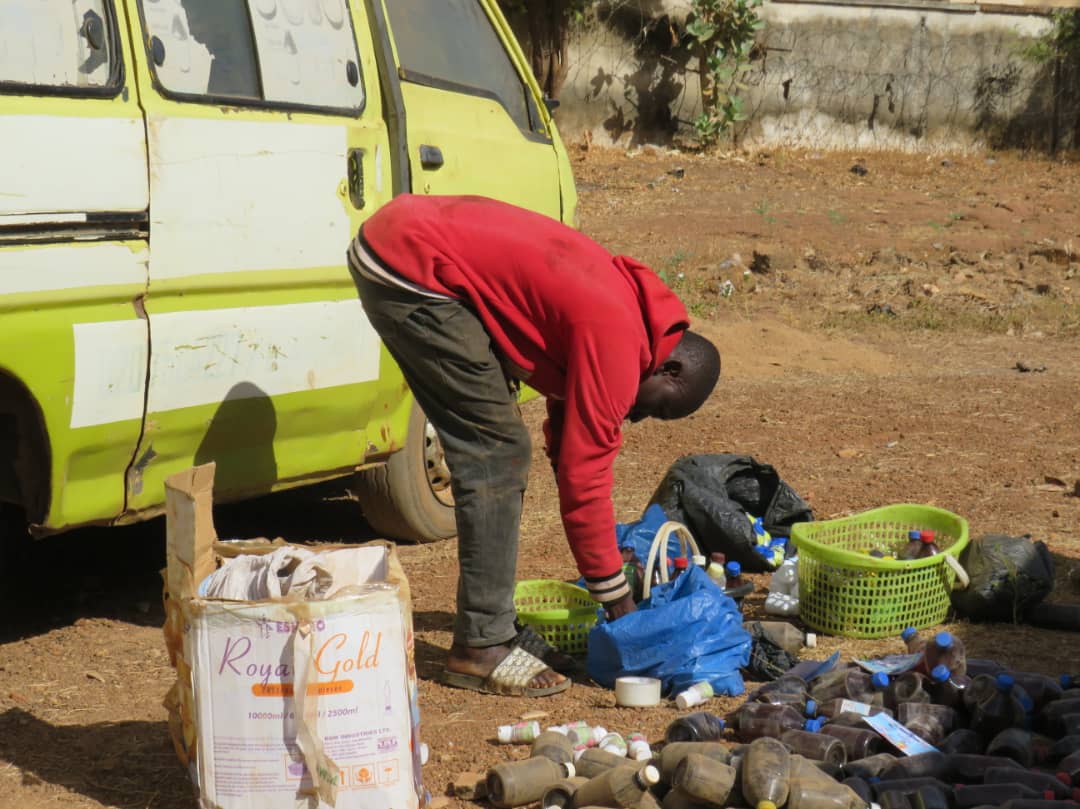
Ghanaian experts are concerned about the rising number of tuberculosis. The Ghana Health Service said 14,632 people were diagnosed with TB and put on treatment.
Health experts in Ghana are urging the government to tackle rising cases of multidrug resistance tuberculosis (MDR-TB) in the country. "We need multiple TB drugs," said Paula Fujiwara, the scientific director of the International Union Against Tuberculosis and Lung Disease. "When you treat tuberculosis, you need many drugs."
Fujiwara said Ghana is recording an increase in the number of patients who developed multidrug resistance TB. "The worst thing you can do in treating TB is to give one drug. Because you give one drug it kills some of the germs but other germs are living. So you need to have another drug that attacks it from another angle. But we are running out of drugs," said Fujiwara.
MDR-TB is a form of TB infection caused by bacteria that are resistant to treatment. The resistance is fueled by many factors including the poor quality of drugs and bad management of supply. Airborne transmission of bacteria in public spaces is also named as a factor. With Ghana trying to prevent an upsurge in MDR-TB incidences, screening for the disease is also a major challenge.
Misdiagnosis of TB
23 year old Alex Morgan was diagnosed with TB last year after being misdiagnosed several times and given the wrong medication that had a negative impact on his health. "When I lost weight, people thought that I was HIV positive," he said.
Before Morgan found he had TB, he had lost a lot of weight and was feeling a lot of pain in his chest. After five months in treatment, he is recuperating very well. However, he nearly gave up on treatment due to stigma.
"There is a stigma, people like to say things that make you even want to stop taking your medication. I was relieved when the doctor told me that he would prescribe medicines that would help me get better," said Morgan.
Poor ventilation blamed for the spread of TB
According to the Ghana Health Service, 286 out of 100,000 people in Ghana are infected with TB annually. Data from the National Tuberculosis Program showed that 14,632 people were diagnosed with TB and put on treatment in 2015. The program also stated that 77 cases of multidrug resistant TB were recorded in 2016 up from 60 recorded in the previous year. The program reported that 12 people died, 15 declared cured while 51 are still on treatment.
The government is also concerned about the number of cases reported in Buduburam, in central Ghana. Liberian refugees living there were blamed for contributing to the number of TB cases reported in the country. Even though some have been repatriated back to their home country, many stayed with their families.
Poorly ventilated houses is also considered as a cause for the spread of the disease. TB specialist Samuel Kudzawu said that the government needs to create awareness to Ghanaians on the importance of screening and living in well ventilated homes.
"TB is an airborne disease. So if five people are sleeping in a room that has no window or has only one window, by the time you detect that one person has TB, he has infected the others," Kudzawu said.
Shorter regimen treatment regimen for drug resistance TB
The World Health Organization rolled out a shorter treatment regimen for MDR-TB patients this year. The recommendations offer hope to many MDR-TB patients, who can now benefit from a test that quickly identifies eligibility for the shorter regimen, and then complete treatment in half the time and at nearly half the cost.
Those who will be put on this regimen will be on treatment for a period of between nine to twelve months. Previously, people suffering from multidrug resistance TB were placed on medication for 24 months. According to the WHO, the conventional treatment regimens, which takes 18-24 months to complete, yielded low cure rates. This is attributed to the fact that patients find it very hard to keep taking second-line drugs, which can be quite toxic for prolonged periods of time. They therefore often stop treatment or are lost to follow-ups in health services.
In a bid to reduce MDR-TB cases in Ghana, the Alliance for Battle Against Tuberculosis initiative has started a project in rural areas to help persons suffering from TB.
The alliance hopes that continuous awareness raised by the government and Non-Governmental Organizations will help increase the number of people who go for screenings as well are reduce the stigma levels in the country.
Read Full Story


























Facebook
Twitter
Pinterest
Instagram
Google+
YouTube
LinkedIn
RSS